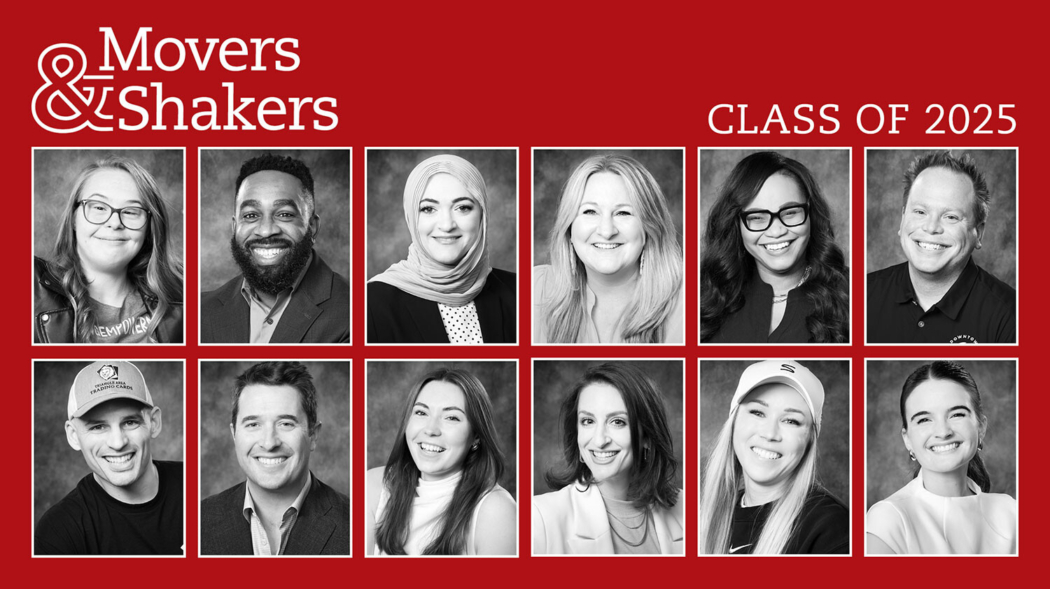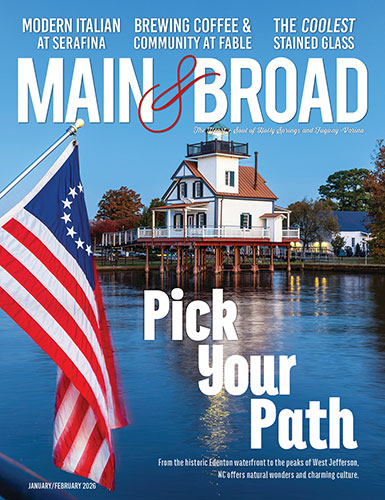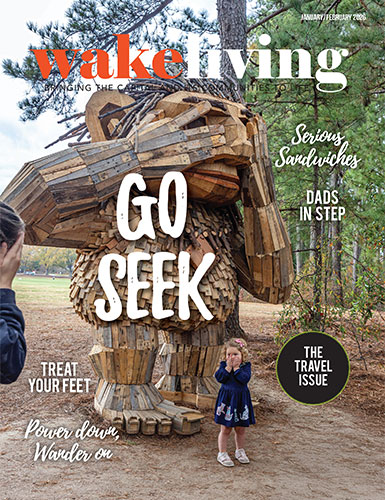Here’s to the next generation of changemakers in Western Wake. Truly in a class of their own, the 12 Movers & Shakers honored this year — from innovative entrepreneurs and visionary business leaders to passionate activists and talented artists — embody excellence, determination, and inspiration. Join us as we celebrate their achievements, aspirations, and the indelible marks they are leaving on our community. Let the journey begin!
Gabi Angelini
Co-Founder of Gabi’s: Packaging with Purpose

Who or what inspired you to pursue your current career path?
Nobody would hire me. I applied to many jobs; they all said no. The last one was the last straw for us, so we decided that we would start our own company and employ my friends with special abilities.
Can you share an example of a skill you recently developed?
I have learned how to be a paid public speaker.
How does your organization’s culture influence collaboration and teamwork among employees?
We have a kind and supportive place where everyone is included and works together, helping each other do their best as a team.
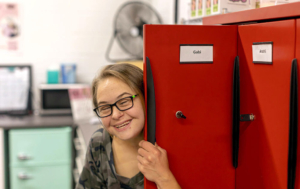
What strategies do you use to manage stress and maintain resilience during challenging times at work?
Calming music, stress ball, or talking to friends.
What hobbies or activities do you engage in outside of work?
Basketball, soccer, and skiing.
Have you had any mentors, and how have they influenced your career?
My mom has helped me create a company named after me that employs people like me.
What skills do you believe are becoming increasingly important for success in your field?
I believe quality control, since our people with autism are great at that job.
What accomplishment are you most proud of in your professional journey so far?
I am proud that we have over 40 employees with special abilities.
André Anthony
CEO of Dorcas Ministries
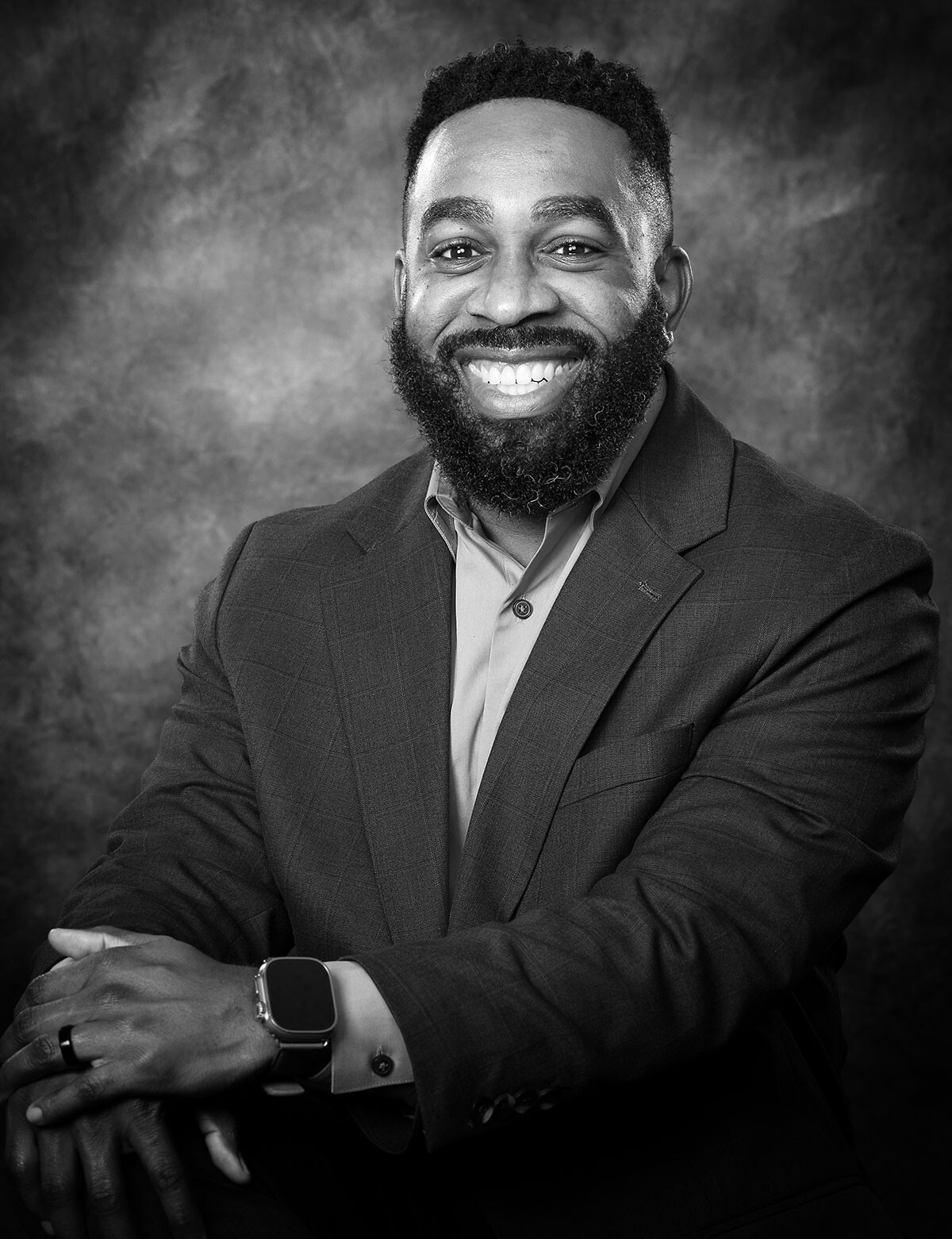
Who or what inspired you to pursue your current career path?
As a young man on my own at the age of 14, I grew up in the YMCA in Twin Cities. I had an executive director who treated me like a son. I’ll never forget the way he spoke into my life. He even paid for me to take driver’s ed and get my permit. He was the best human being I had ever met, and he inspired me to want to always be part of a social impact organization that takes care of people who need us most.
How do you approach feedback and criticism to foster your personal and professional growth?
“Leaders who don’t listen will eventually be surrounded by people who have nothing to say.”
— Andy Stanley
My confidence in my ability to lead comes from the fact that I don’t run away from feedback and criticism. You can’t lead without listening. You can’t grow without listening. You make bad decisions when you don’t listen. I intentionally surround myself with people who can advise me and who aren’t afraid to tell me what I don’t want to hear. It is an absolutely critical part of personal and professional growth.
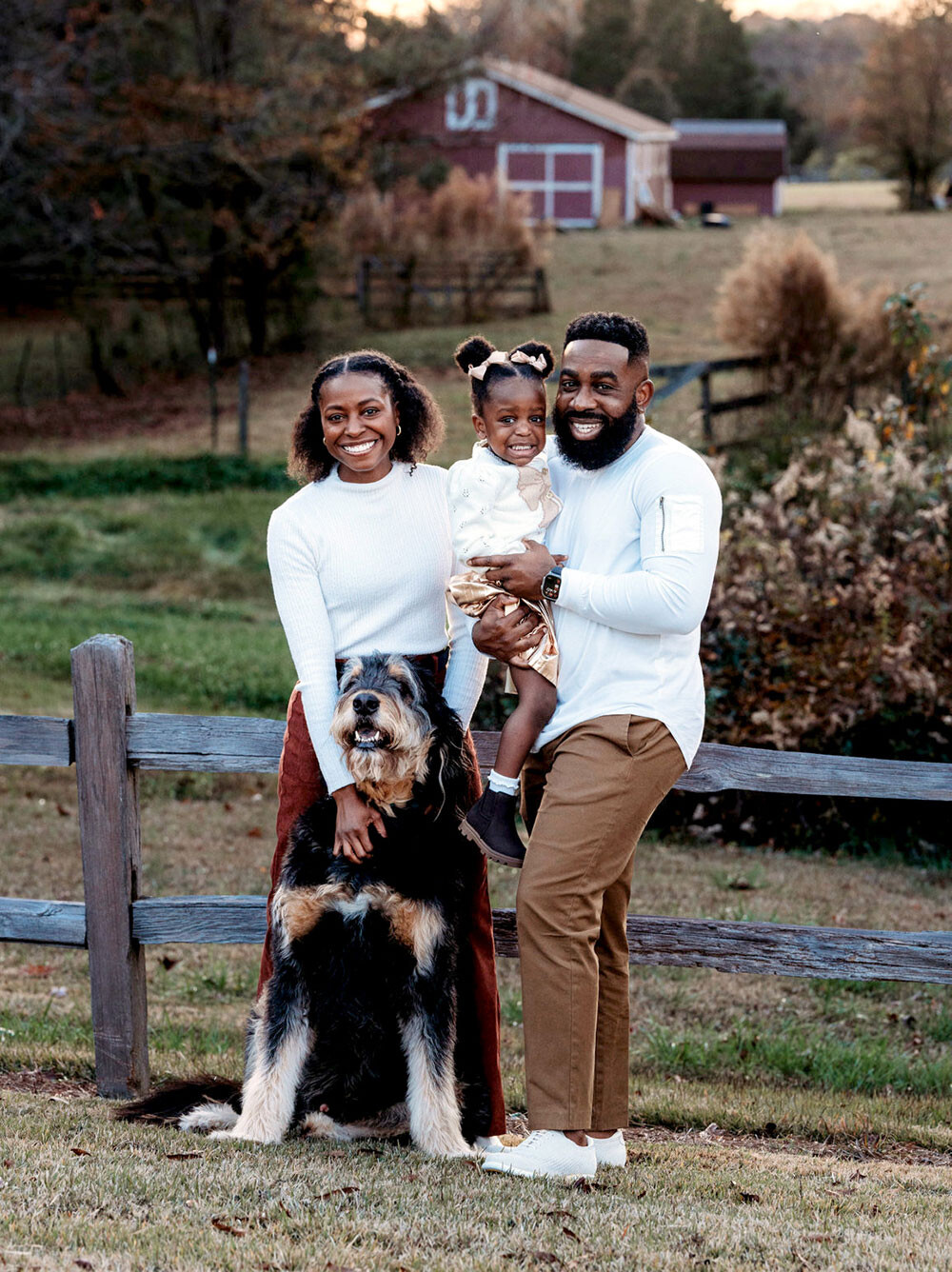
What type of work environment do you thrive in?
A healthy culture means everything to me. My definition of culture, which I stole from someone else, is: “how people’s hearts and minds feel about Monday morning on Sunday night.” I thrive in a healthy, collaborative, mission-driven environment that isn’t afraid of healthy conflict. Conflict isn’t always negative. It can be an integral part of an organization’s culture. Silent dissent does no one any good. Ever.
What challenges have you faced as a young professional and how did you overcome them?
Navigating and leading a successful merger between Dorcas Ministries and Western Wake Crisis Ministry has been challenging yet rewarding. Bringing together two distinct organizational cultures, aligning our missions, and managing the complexities of transition has required thoughtful leadership, empathy, and strategic vision. We have a team of talented professionals working together to overcome challenges, which will allow us to amplify our community impact significantly.
How do you maintain a healthy work-life balance?
I make it a priority — and that doesn’t mean I get it right all the time, but it is a priority. It’s also part of the way I lead. I need my team to see me prioritizing it in hopes that it encourages them to do the same. I don’t believe in martyrs. I’m ultimately responsible for my own well-being. I try not to work when I get home so I can fully be a dad and husband. I wake up at 5 or 5:30 a.m. most mornings and work or get a workout in while my wife and daughter are asleep. That’s part of me investing in myself and having my own quiet time before the day starts.
Have you had any mentors, and how have they influenced your career?
I’ve had several mentors throughout my career, and one thing that I’ve learned is that vulnerability and authenticity in leadership are strengths, not weaknesses. Early on, I thought leaders needed to project perfection and absolute certainty. Now I understand that transparency, humility, and openness foster greater trust, deeper collaboration, and stronger organizational cultures.
What trends do you see shaping your industry in the coming years, and how can young professionals prepare for them?
The nonprofit sector will experience a transformative shift toward greater collaboration and consolidation. Organizations will increasingly join forces or form strategic partnerships to address systemic issues like poverty, housing instability, and workforce development more effectively.
Additionally, technology integration will accelerate, enabling nonprofits to improve efficiency, data-driven decision-making, and accessibility of services. In navigating these changes as professionals, we have to shift from a scarcity mindset to a social impact model — where being strategic, innovative, and intentional are key to sustainable, impactful change.
Hanadi Asad
Co-Owner of Asali Desserts & Café
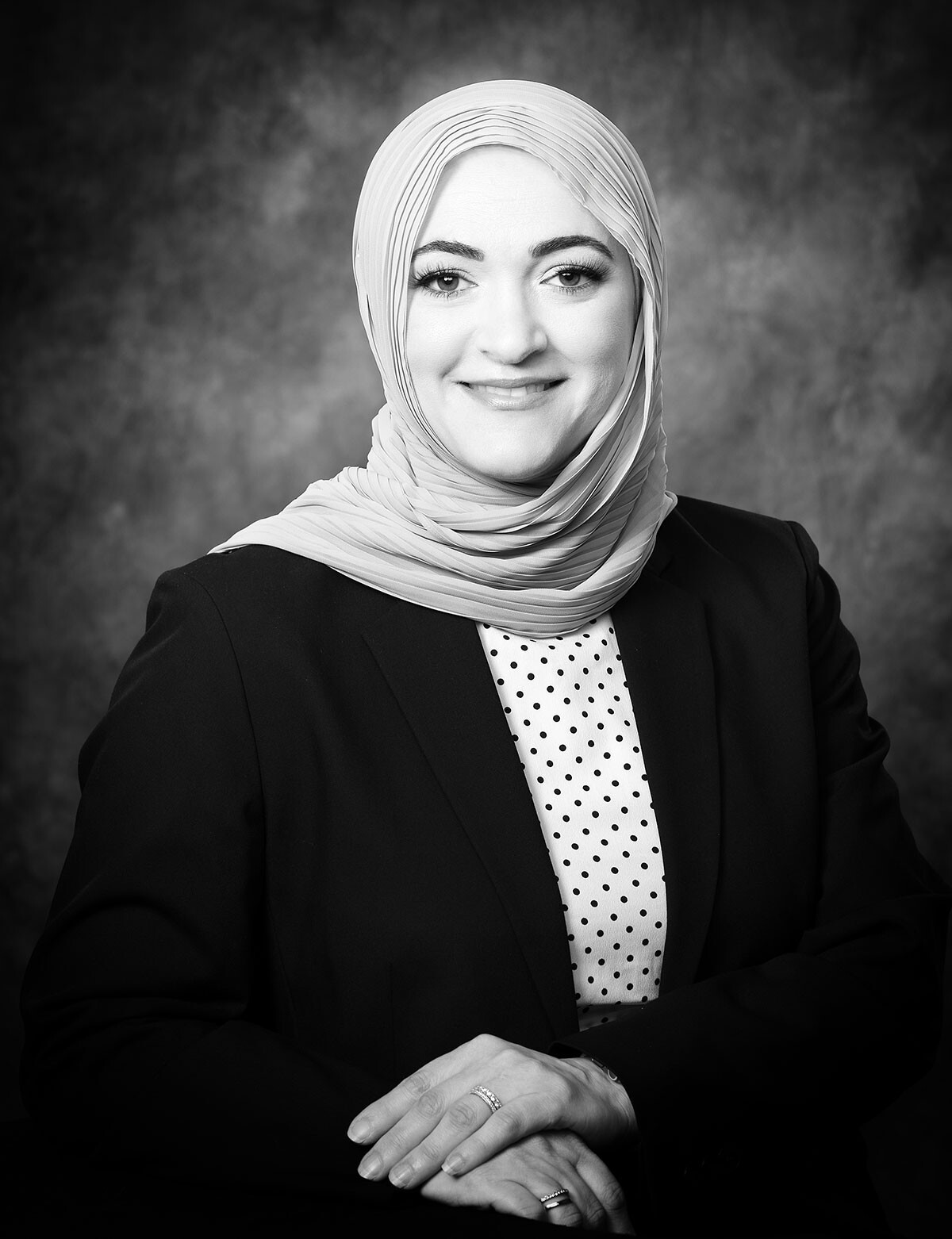
Who or what inspired you to pursue your current career path?
My children were my biggest inspiration. I wanted to show them what it looks like to pursue a dream with courage and dedication, even in the face of doubt or fear. My husband and I had always dreamed of opening a café, but we were often discouraged by others. That experience made me realize how easy it is to let fear and outside opinions steer your life. I didn’t want that for my kids. I wanted them to grow up believing in their own potential and to know that with hard work and commitment, they can achieve what they set their hearts on. By following my dream, I hope I’ve given them a living example of what it means to believe in yourself.
What skills are essential for success in your field?
Perseverance and vision. In this field, you need the ability to keep going — even when things don’t come together right away — until you gain clarity on what works. Success often comes from being open to experimentation, whether it’s trying out a new ingredient, creating a fresh customer experience, or improving on something that already exists. I’ve seen many people give up too quickly if something doesn’t work the first time, but I believe consistent effort and the willingness to learn from each attempt are what truly lead to growth and success.
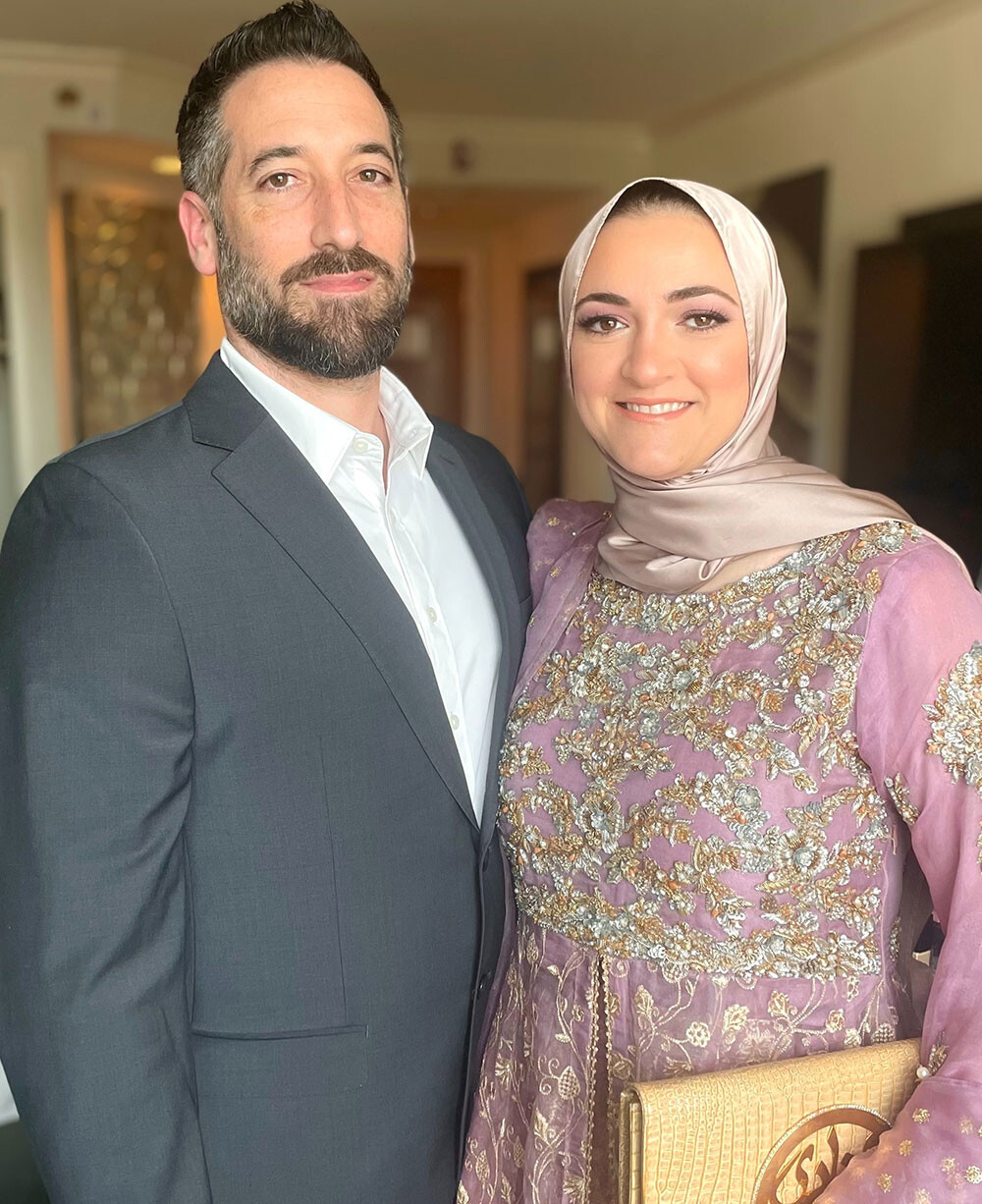
How do you handle collaboration and teamwork in your projects?
I approach collaboration with a willingness to listen objectively and not take feedback personally. Everyone brings a different perspective, and it’s important to stay open to ideas, especially when they challenge my own. I make a point to genuinely consider suggestions and often implement them during test runs or trials to see how they work in practice. At the end of the day, the goal of what I do is to create something others can enjoy. It’s not just about what I like, but about what resonates with the people we serve. That mindset keeps me grounded and focused on working as part of a team.
How do you maintain a healthy work-life balance?
As a business owner, it’s true that you’re always somewhat connected. But I’ve learned that maintaining a healthy work-life balance comes down to knowing what matters most and why. I genuinely love what I do, but not more than I love my family, friends, and the incredible team around me. These are the people who support me, keep me grounded, and are there when I need them — which we all do at some point in our lives. I’ve been very fortunate to be surrounded by people who truly know me and have encouraged me to find that balance. Their presence reminds me to step back, recharge, and appreciate life beyond work.
What challenges face your industry today and how might they impact emerging professionals?
The hospitality industry has faced several ongoing challenges since the pandemic, including supply chain disruptions, labor shortages, and rising inflation. These issues have made it necessary for professionals — especially those just entering the field — to adapt more quickly than in the past. Emerging professionals must be prepared to assess their business needs and available resources in real time and be ready to pivot if persistent challenges arise in any area. Flexibility, quick decision-making, and a willingness to innovate are now essential to ensuring both the sustainability and growth of a business in today’s landscape.
Heather Eck
Intuitive Artist
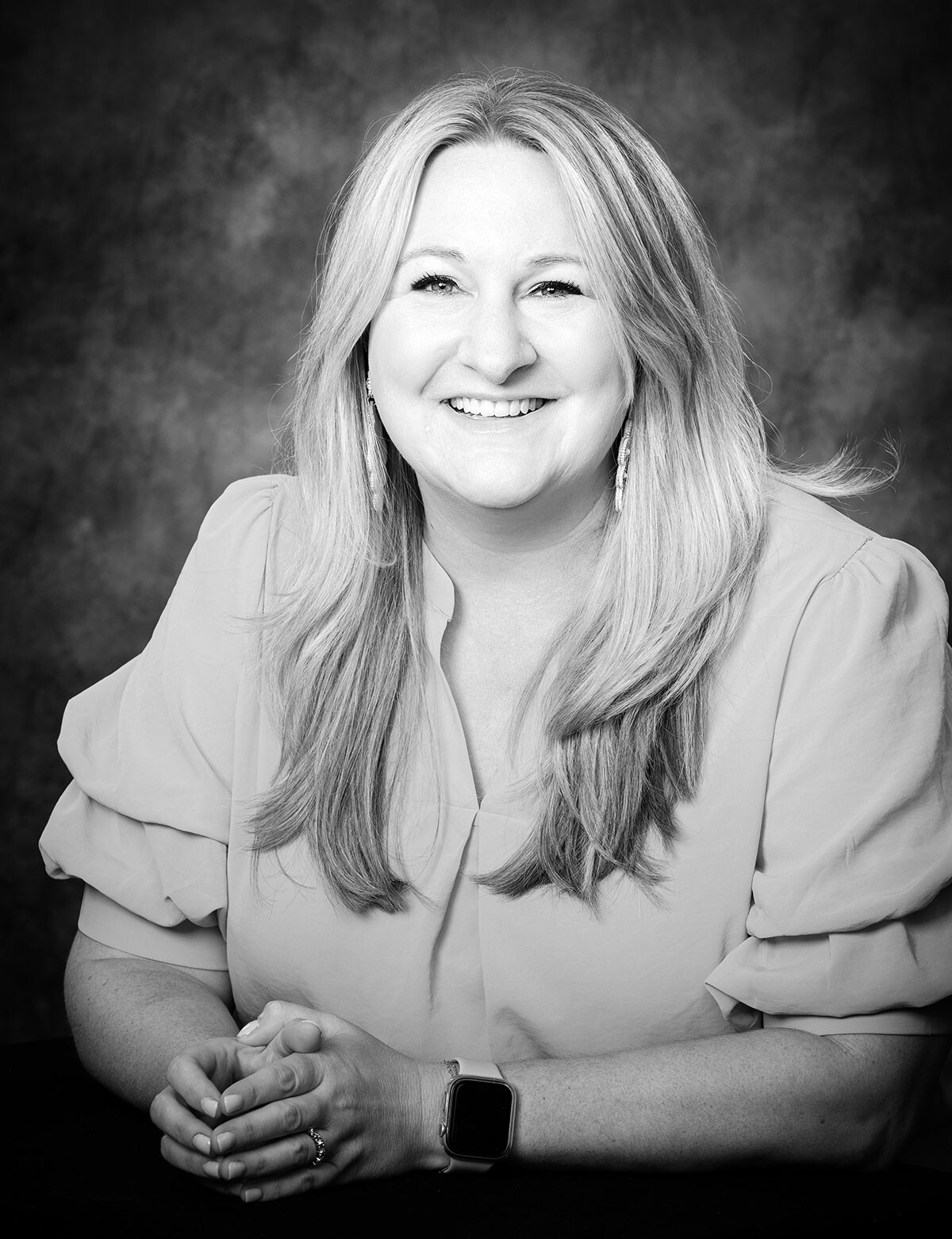
Who or what inspired you to pursue your current career path?
For nearly two decades, I worked for some of the world’s most recognizable companies — a major bank, a global advertising agency in NYC, and even a top video game company. I built a successful career in human resources and on paper had it all. But inside, I felt exhausted, unfulfilled, and strangely numb.
I’ve always been a creative person — drawing, painting, and making things since I was a kid. Over the years, I dabbled in creative side projects, but nothing truly lit me up until I returned to painting. I started small: just me, some paints, and early mornings in the garage before work. It became my outlet, and I found myself wanting more.
Then one day, I received a big promotion and a raise — on the exact same day I was invited to do my first solo art show. I should’ve been thrilled! But instead, I felt a wave of sadness and resistance. That moment was a turning point for me; about a year later, I left corporate life to follow the pull of creativity and healing full time.
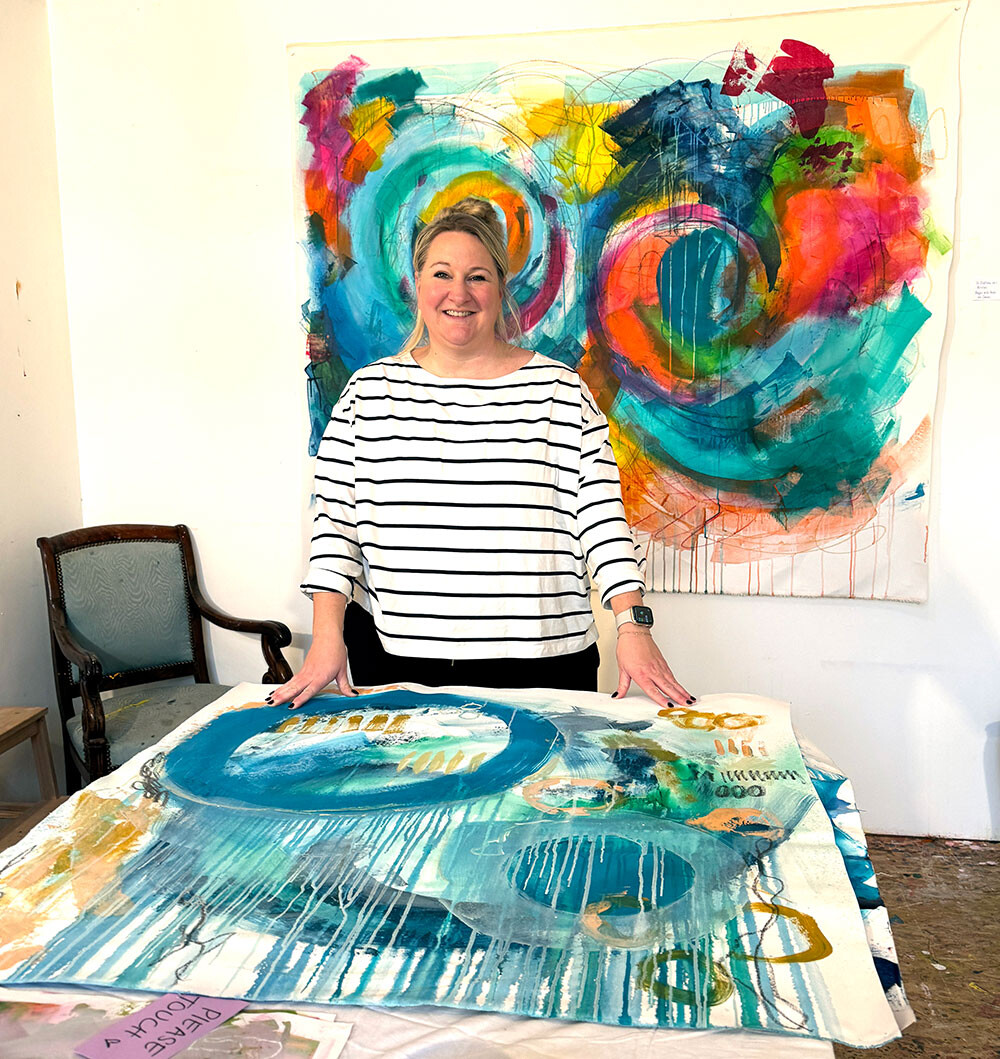
Is there a project or experience that significantly contributed to your professional growth?
This past January, I was invited to attend a prestigious two-week artist residency in the French countryside at Château d’Orquevaux.
I’m a self-taught artist, so, for the first time, I was surrounded by fellow creatives — filmmakers, artists, writers, musicians — who instantly got me. I didn’t have to explain who I was or what I created. They just saw me. We worked side by side in individual studios inside a stunning 18th-century French château. We shared meals, deep conversations, creative breakthroughs, and vulnerable stories.
Immersing myself in that environment helped me reconnect with my artistic voice in a deeper, more intentional way. It shifted how I approach my creative process and the stories I tell through my work.
How do you approach setbacks or failures in your professional journey?
Being an artist is a vulnerable path. Every time you share your work — whether it’s a painting, a piece of writing, or a song — you’re sharing a part of your soul. You’re inviting others to see it, feel it, question it, and sometimes judge it.
A spiritual teacher once told me, “Not everyone is meant to shelter under your tree.” That wisdom stays with me. It reminds me that just because my work isn’t for everyone doesn’t mean it isn’t valuable. The right people will find it at the right time — and when they do, it will be exactly what they needed.
What skills do you believe are becoming increasingly important for success in your field?
I’m incredibly grateful for my 25 years in the corporate world. From college through my roles in project management and HR, every skill I learned — communication, leadership, systems thinking, time management — has helped me make the leap from corporate HR manager to full-time working artist.
In the creative world, talent and vision are essential — but so are the basics of running a business. Artists today need to understand marketing, budgeting, project management, and customer experience. The ability to stay organized, communicate clearly, and manage your time with intention is just as important as making the art itself.
That blend of creativity and structure is what allows you to sustain and grow a business doing what you love. And in my case, intuitive awareness and spiritual sensitivity are just as vital. They guide my creative process, shape how I connect with others, and help me infuse deeper meaning and healing into everything I create.
Zinnia Hamm
Vice President, Branch Manager at First Bank
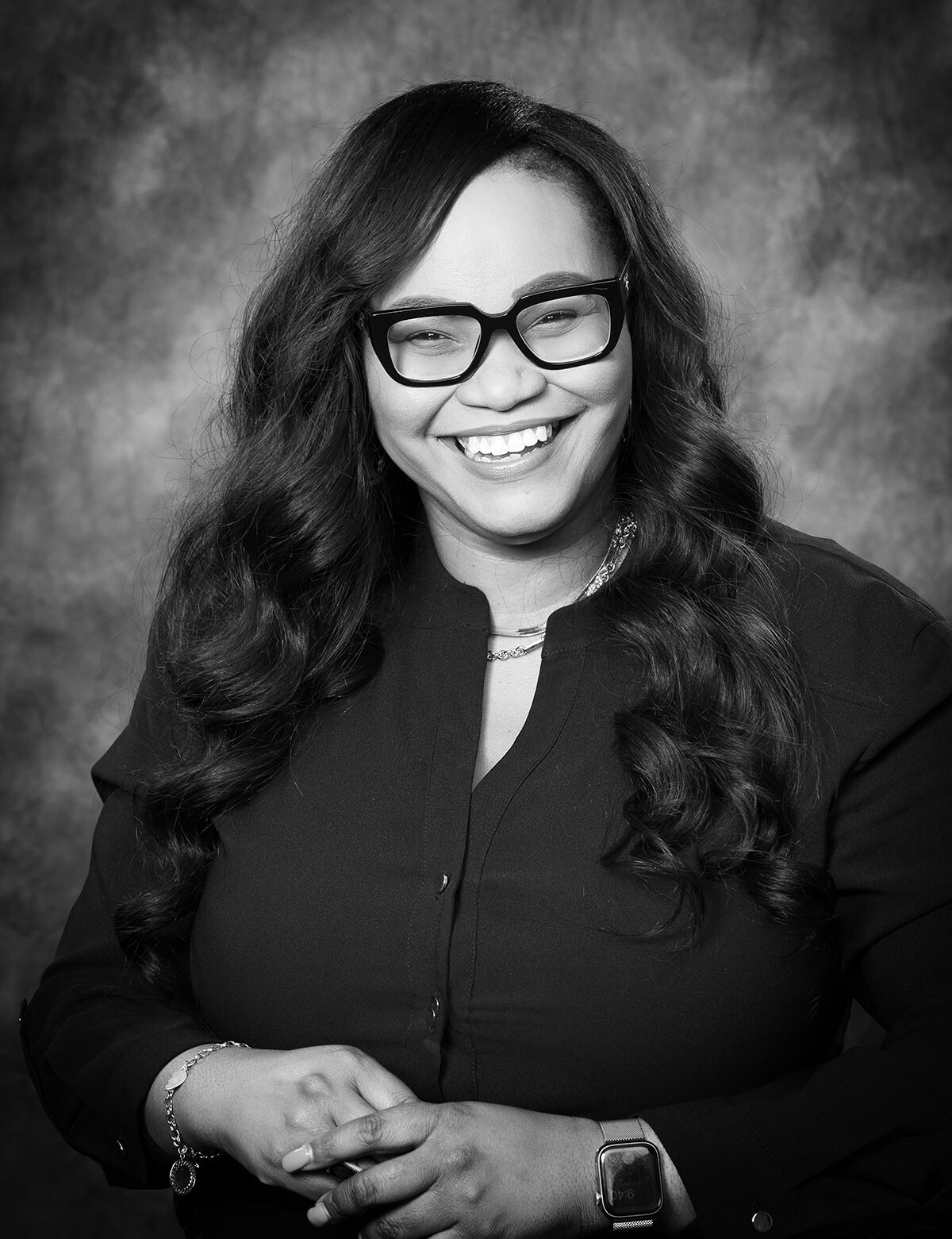
What steps are you taking to achieve your long-term career aspirations?
During the Thanksgiving holiday of 2021, I committed to finishing what I’d started more than two decades before: earning my college degree. At the time, I was a tenured banking professional with an associate degree in liberal arts, but I felt unfulfilled knowing I hadn’t completed my undergraduate education. Initially, I planned to resume my political studies degree program at Meredith College, but a trusted mentor encouraged me to pursue a field aligned with my current strengths and passions: communications.
Taking her advice to heart, I enrolled in Campbell University’s Adult & Online Education program and graduated summa cum laude in May 2023 with a BA in communication studies. That same year, I was selected for one of 18 seats in the University of North Carolina at Chapel Hill’s Hussman School of Journalism and Media’s MA in Digital Communications program.
Each step of my journey reflects my dedication to lifelong learning, professional growth, and ultimately transitioning into a strategic communications role that bridges my banking expertise with impactful storytelling and digital engagement.
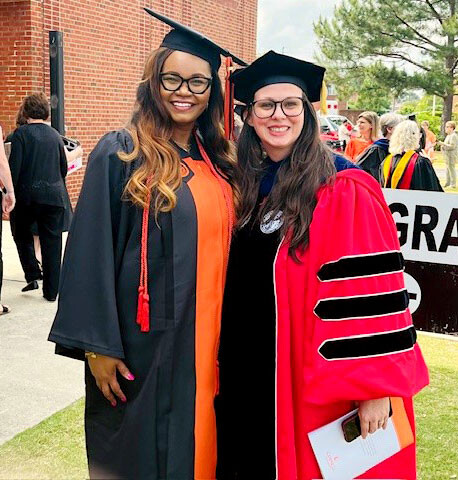
What skills are essential for success in your field?
Relationship-building is essential for success in community banking. As a branch manager, it’s not just about managing transactions; it’s about understanding your customers’ stories, earning their trust, and genuinely investing in their financial well-being. You must be confident and compassionate, a problem solver and a cheerleader. Working for a local community bank rooted in the Carolinas has reinforced the importance of that personal connection. We’re not just serving customers — we’re supporting neighbors, small businesses, and the broader well-being of our community.
How does your organization’s culture influence collaboration and teamwork among employees?
When First Bank hired me to open a de novo branch in downtown Cary, I was brought on nearly a year before the doors opened. That decision spoke volumes: The leadership didn’t just want someone to run a branch; they wanted someone who would truly embrace and reflect the culture.
At many banks, a change in leadership can mean a complete shift in values or direction. However, at First Bank, the culture is steady and deeply rooted in service and relationships. It doesn’t change to fit you — you must be the right fit for it.
I’m surrounded by supportive colleagues across all lines of business. We know each other by name, look out for one another, and collaborate to ensure the success of our clients and our bank. We work across teams, sharing ideas and solutions to create something stronger together.
What challenges does your industry face, and how might they impact emerging professionals?
While broader economic factors like tariffs and inflation certainly pose challenges, one of the most significant shifts in the banking industry has been the evolution of branch banking in a digital age. As more customers rely on online platforms for everyday transactions — through mobile deposits, Zelle, and ACH payments — the need to visit a physical branch has steadily declined. This shift has transformed the role of traditional branches and the professionals who lead them.
For emerging banking professionals, success will depend on adaptability and a willingness to embrace technology, data, and digital engagement strategies. Banks must now find creative ways to distinguish themselves, not just through competitive products, but also by how they engage with the community and in digital spaces. Social media, personalized outreach, and strategic content will increasingly play a significant role in how financial institutions build trust and connect with the next generation of clients.
Ryan O’Quinn
Downtown Cary Park Program Specialist for the Town of Cary
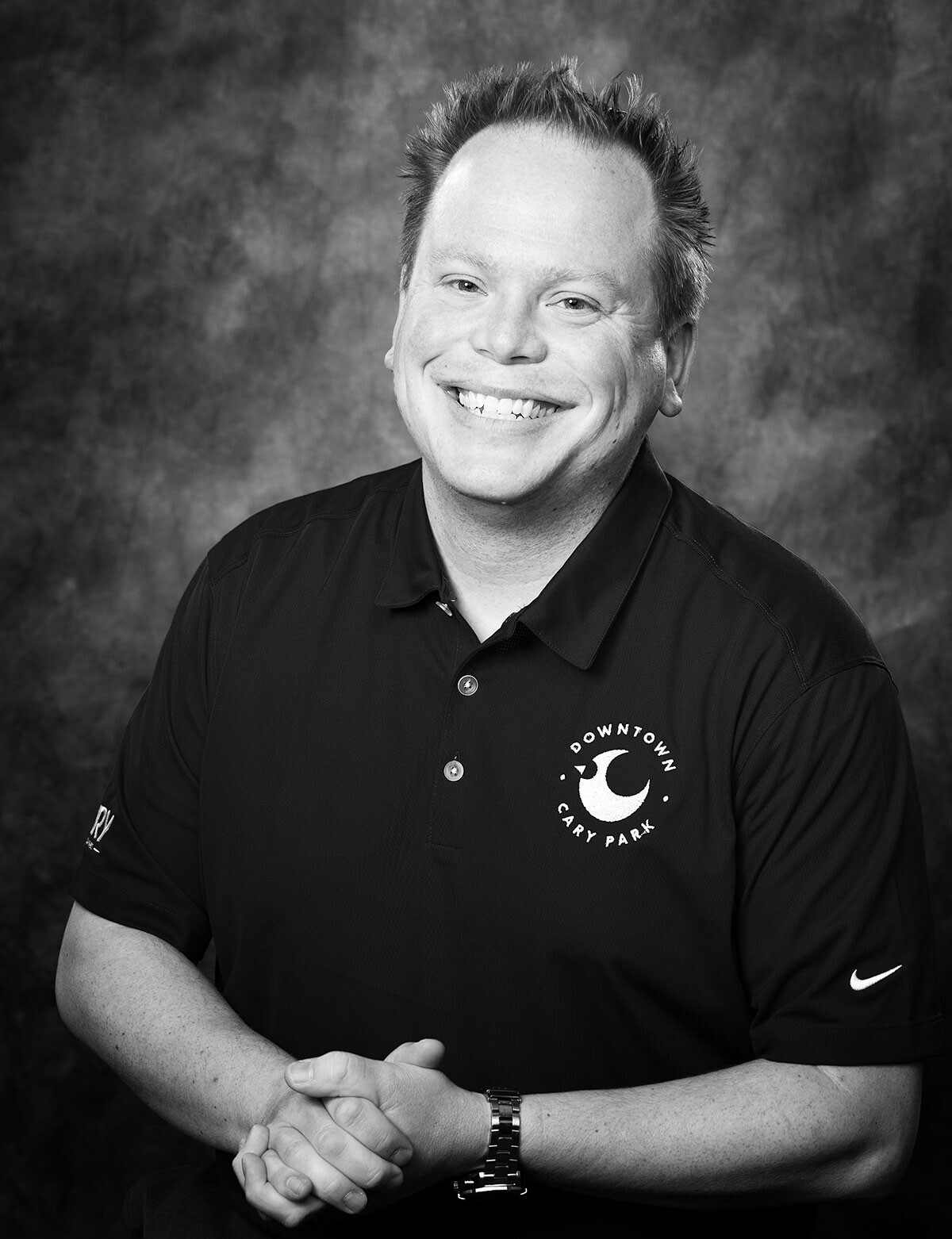
Who or what inspired you to pursue your current career path?
I have always wanted a job that was fun. I didn’t want to spend eight hours a day doing something that made me miserable just for a paycheck. I have been fortunate to find a place with Cary where I am able to be creative and have fun while I work. There is nothing better than seeing thousands of people enjoying an event that you helped plan.
How do you approach feedback and criticism to foster your personal and professional growth?
I always welcome feedback and criticism. It gives me a chance to see things from a different perspective and make positive changes to my events. You don’t have to implement everything, but it does give you a chance to see where improvements can be made.
What type of work environment do you thrive in?
I work best in a team-oriented environment. I love bouncing ideas off my coworkers. We have such a creative team with all types of experiences, and the collaborative atmosphere helps when planning complex, dynamic events that cater to a broad audience. Most of our great ideas come after 4 p.m. on Fridays when the week is just about to end.

How do you approach setbacks or failures in your professional journey?
I think every setback is a chance to learn. Just because something doesn’t work the first time doesn’t mean it is a bad idea. If you examine the setbacks, you can apply the lessons learned to make the next event even better. I am fortunate to work in a place that allows you to be creative and adjust, even if the first attempt isn’t a home run.
What hobbies or activities do you engage in outside of work?
I enjoy going to Carolina Hurricanes games, eating at new restaurants around the Triangle, and spending time with my family. I’m also on the board of a local nonprofit that specializes in adaptive ice hockey (trianglespecialhockey.org).
How important is seeking support from colleagues or mentors when facing professional challenges and why?
Seeking support from colleagues and mentors is extremely important to me. They may have an opinion that I haven’t thought of. Reviewing concerns with colleagues gives you additional time, so you don’t overreact to something or make a decision too quickly. Making the right decision is more important than making a quick one; seeking support or advice from others allows you to have as much information as possible.
How do you stay updated with developments and changes in your field?
We go to conferences and continuing-education classes. It’s also helpful to attend and experience other events. The best way to keep up to date is networking. Talking with other people in your field is a great way to stay on top of things. Learning from their experiences can help you grow and refine ideas into bigger concepts
What advice would you give to other young professionals just starting their careers?
Everything is a learning opportunity, so make sure that you absorb as much as you can from your experiences. Don’t forget the basics of being a professional: Show up on time, be dependable, and keep a positive attitude.
Adam Reynolds
Owner of Triangle Area Trading Cards
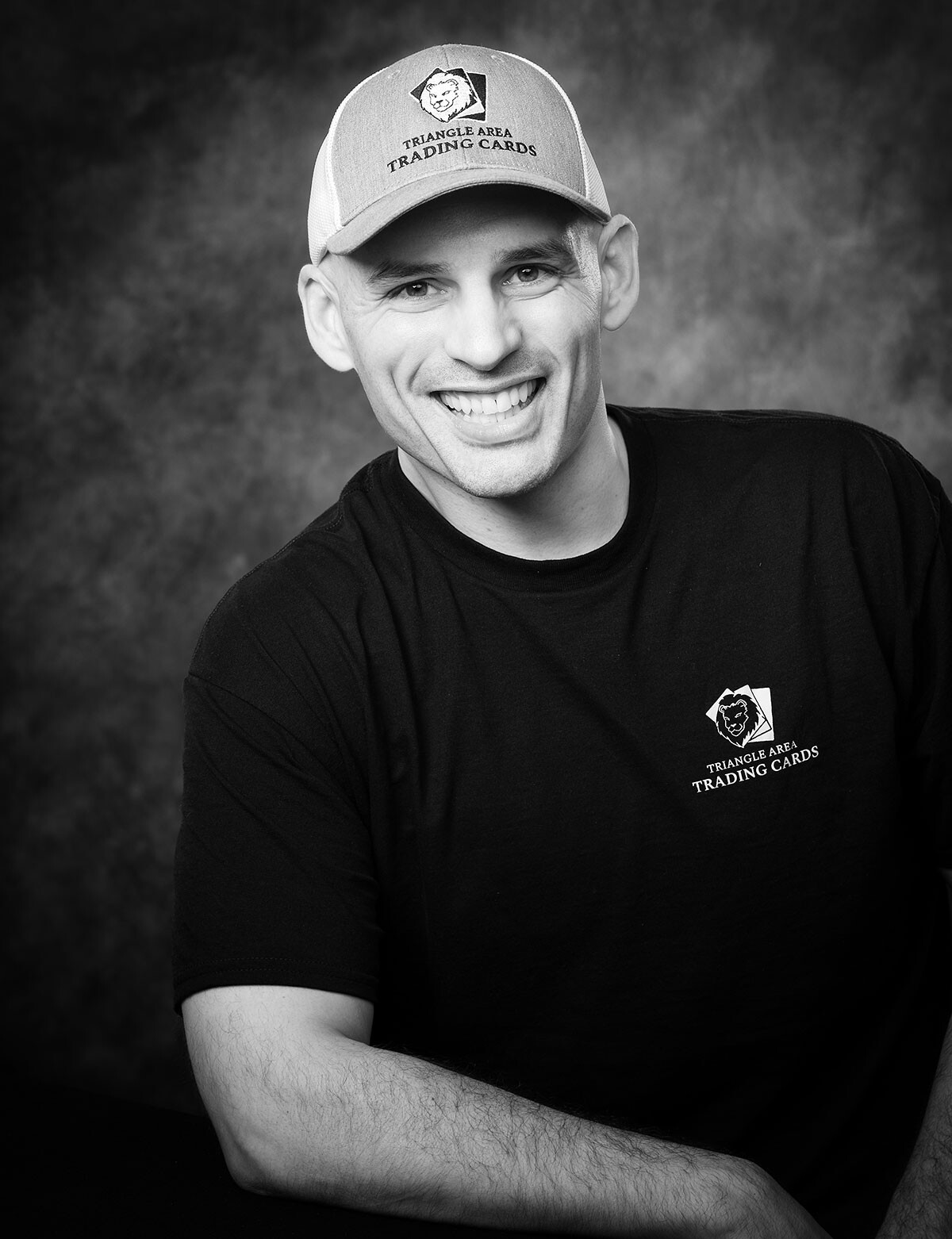
Who or what inspired you to pursue your current career path?
At the heart of Triangle Area Trading Cards is my wife, Tara Reynolds. Without her unwavering support, this business wouldn’t exist. Tara has been my rock through every step of this journey. She grounds my lofty ambitions, ensures the business runs smoothly behind the scenes, and connects effortlessly with our customers — who adore her for her warmth and genuine care.
My love for trading cards began in 1990 when my dad took me to my first Seattle Mariners game at the Kingdome. That day, they handed out baseball cards and a small binder. The cards didn’t fit the pages, so we cut them to size — a decision I laugh about now but strongly advise against today!
Growing up a die-hard Mariners fan, I was fortunate to live near a local card shop in Renton, Washington — a shop that still stands today. It became my second home and, eventually, my workplace during middle and high school.
I’ll never forget the many weekends my dad spent taking me to card shows and shops, always encouraging my hobby. Don, the owner of the shop I worked at, was more than a boss: He was a mentor, teaching me the ins and outs of the trade.
From my beginnings as a kid with a binder full of cards to running Triangle Area Trading Cards, this journey has been a labor of love, deeply rooted in family, community, and the joy of collecting.
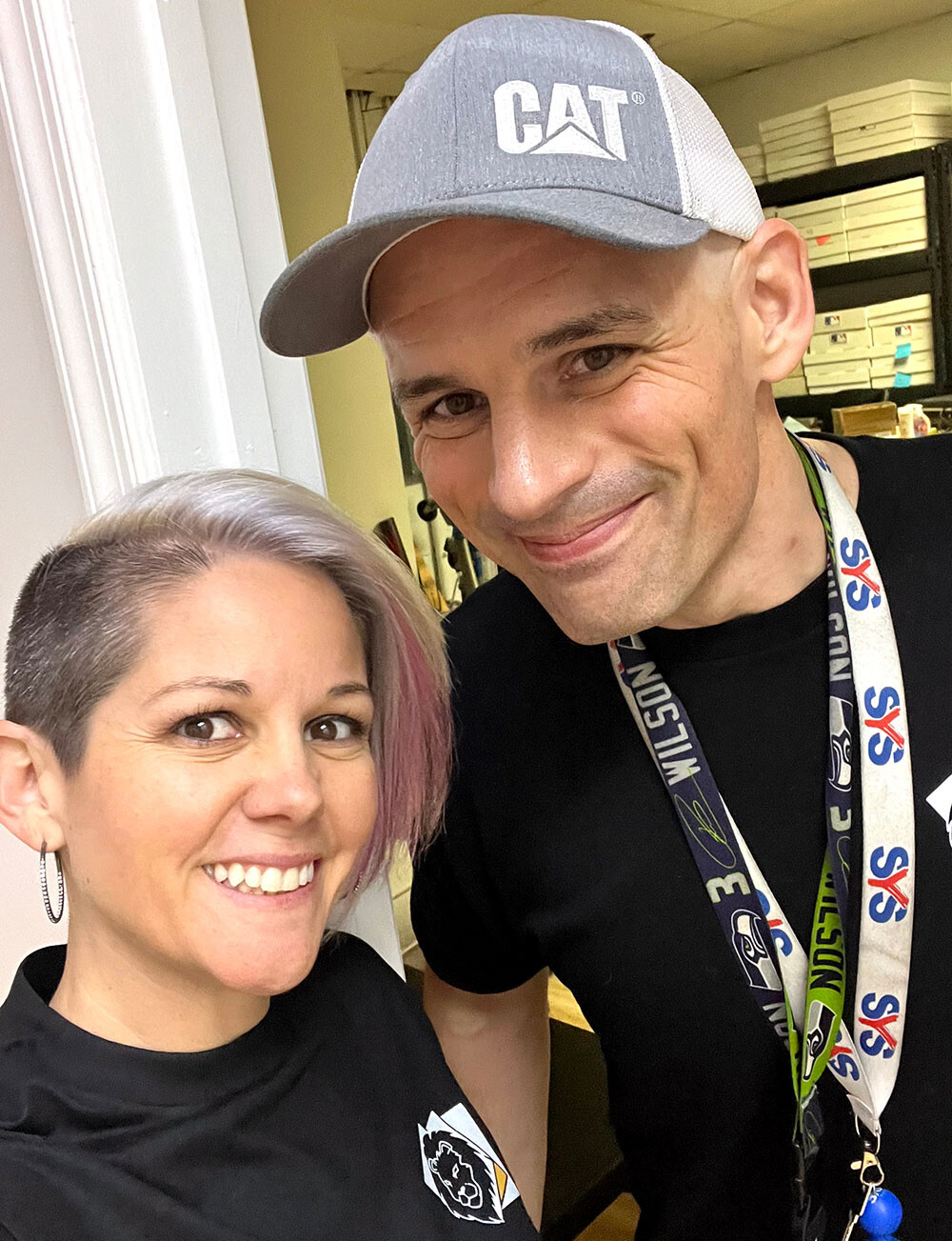
What skills do you believe are essential for success in your field?
Patience, drive, compassion, authenticity, growth, and experience — these are the pillars of success in owning a niche retail business. It’s far from easy, but the result is something truly special: a welcoming space where people love to gather and connect.
Creating this environment takes more than effort; it requires having the right people, in the right roles, at the right time. Our journey has been one of constant learning and adaptation.
We began as a sports card business, but as our vision expanded, so did our brand. In just our first year, we rebranded to focus on trading cards, moved to a larger location, grew our team, and broadened our offerings to include a wider selection of trading cards and supplies.
This evolution reflects our commitment to meeting the needs of our community and ensuring that Triangle Area Trading Cards remains a place where collectors, enthusiasts, and newcomers alike feel right at home.
How do you approach setbacks or failures in your professional journey?
A good friend and fellow shop owner once told me, “If you’re not making mistakes in this business, you’re probably not doing it right.” That insight has stuck with me, especially in a field as dynamic and challenging as trading cards.
In this business, values are constantly shifting, and with dozens of deals happening each week, something is bound to slip through the cracks. Every shop owner has experienced it: missing out on a deal, selling too early or too late, or walking away from a trade that turned out to be uneven. I’ve had my fair share of those moments, and while they sting, they’ve been invaluable.
Each so-called “miss” has taught me lessons that shaped who I am and how I approach this business today. Every perceived failure is an opportunity to learn, adapt, and strive to get it right the next time.
How do you stay updated with developments and changes in your field?
Staying current in this industry is, without a doubt, one of the most challenging aspects of what we do. While our team utilizes a variety of resources to track market trends, the sheer volume of developments can be overwhelming. Keeping up with baseball, basketball, football, hockey, soccer, Pokémon, Star Wars, Magic: The Gathering, Lorcana, and One Piece is a massive undertaking.
We rely on each other and our amazing customer base to stay informed. Every member of our team brings unique strengths to the table. When one of us encounters a challenge or an area where we lack expertise, another steps in to provide support and insight. It’s this shared commitment and collaboration that allows us to navigate the complexities of the trading card world and deliver the best possible experience for our community.
Russell Stewart
Vice President, Principal at Lee & Associates Raleigh Durham Wilmington
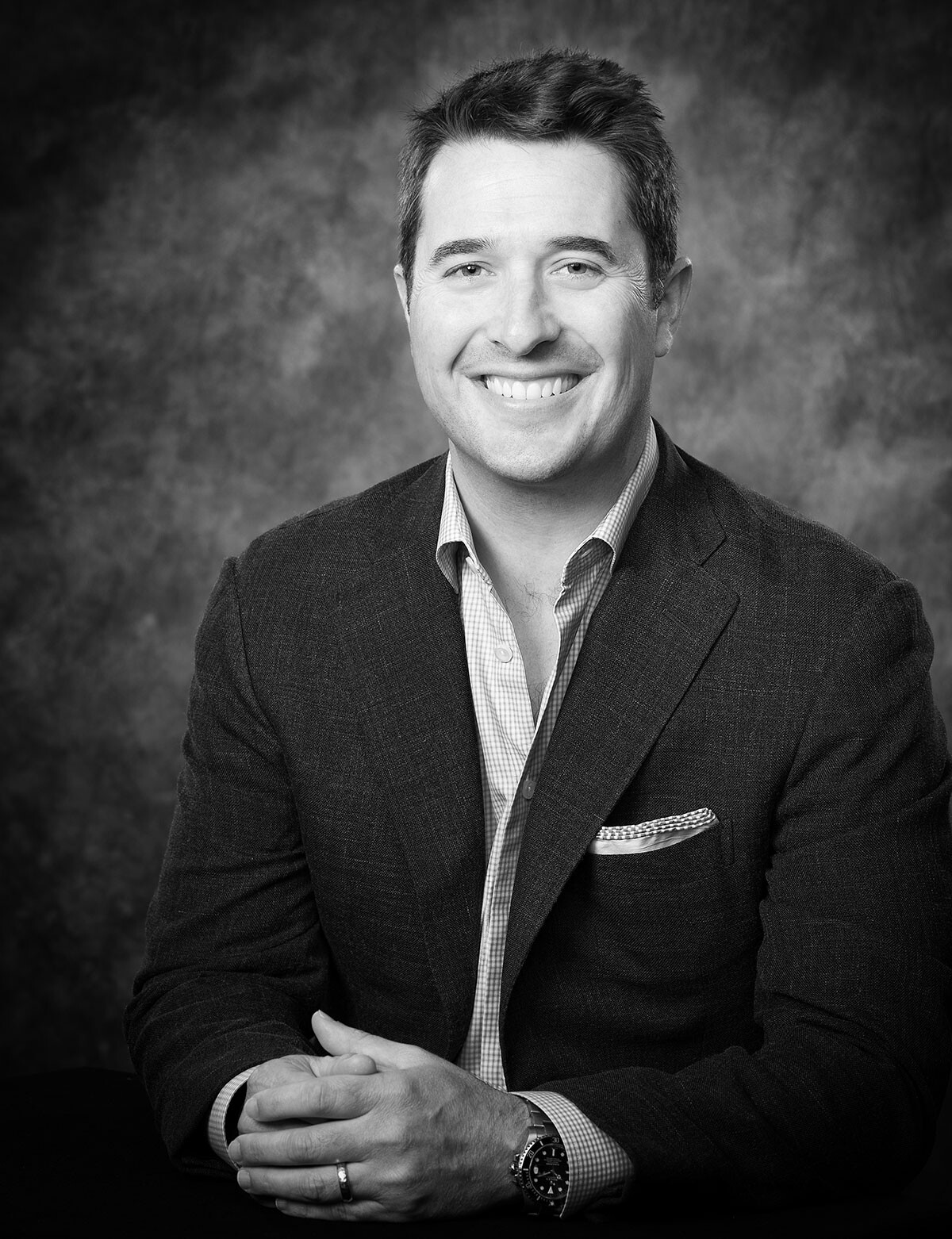
Who or what inspired you to pursue your current career path?
I’m very blessed that I grew up around real estate. My parents are in real estate sales/development and have been since I was a young child, so it has always been something I was familiar with. My wife’s family is also in real estate, so there really wasn’t any escaping it!
What skills do you believe are essential for success in your field?
Availability, communication, and time management. Clients want to be able to get in touch with you and know what’s going on. For a client, their buy/sale/lease requirement is a major priority, so you must treat it as such. We all have resources to numbers and data, but being able to communicate that data to your client in an effective way is critical.
How does your organization’s culture influence collaboration and teamwork among employees?
The best part about Lee & Associates Raleigh Durham Wilmington is that we are given the freedom to work on any deal — we aren’t limited to a specific asset class. If a retail or office broker comes across a land deal, they can team up with a land broker. This helps brokers learn the ins and outs of different types of deals.
How do you approach setbacks or failures in your professional journey?
Just keep putting one foot in front of the other. There is no such thing as an “easy” deal … without fail, there will always be a wrench thrown into a deal before everything is said and done. You prove your value to clients when you come up with solutions to the problems you face along the way. I’m also a firm believer in not letting your highs get too high or your lows too low, so I try not to let setbacks or failures discourage me.
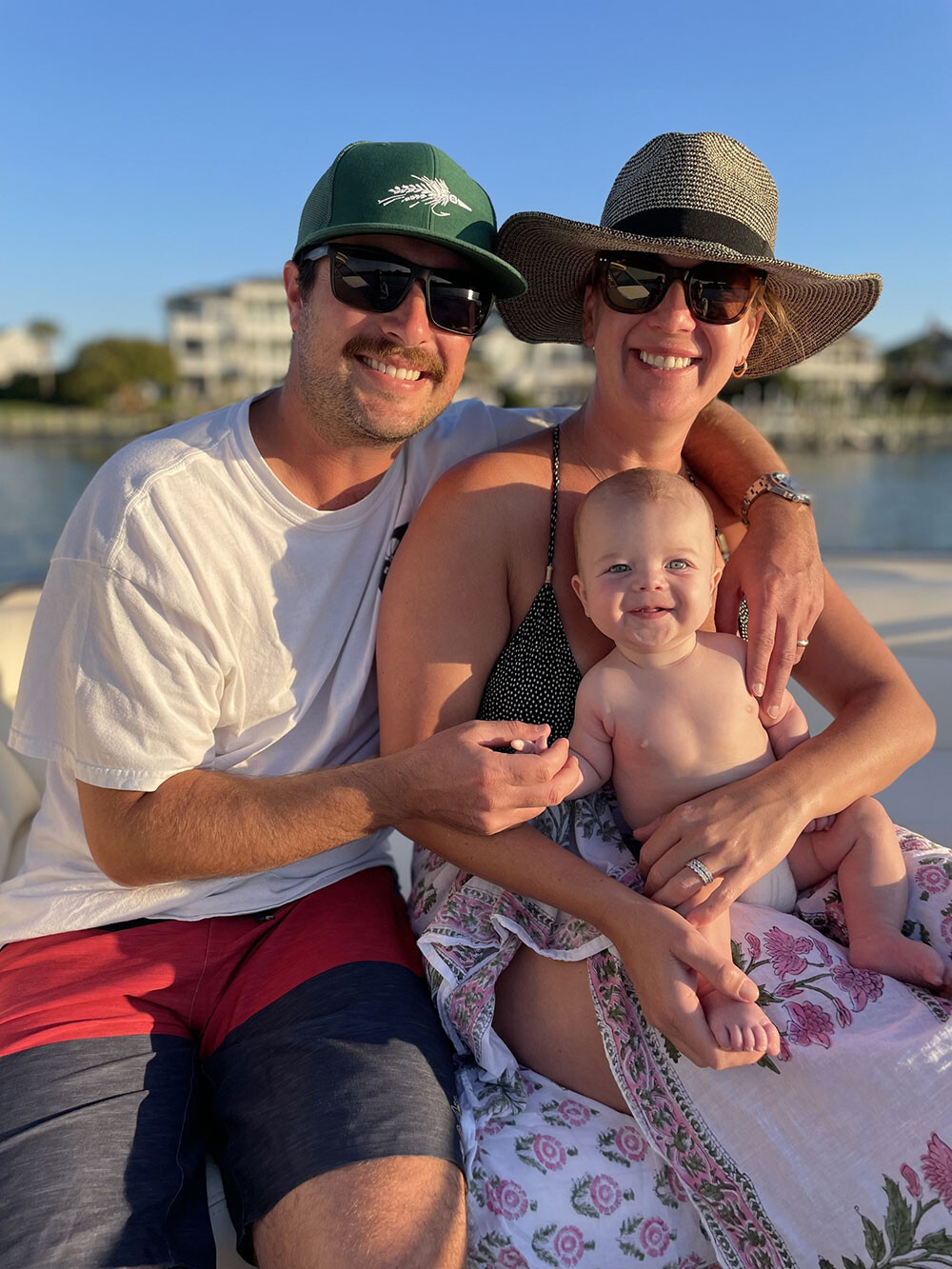
How do you maintain a healthy work-life balance?
My wife and I have a 2-year-old boy and a 2-month-old baby girl, so right now that balance is heavily caffeinated! One of the best things about our business is the flexibility in our schedule, so I don’t miss anything at home. We love to travel and get down to the beach, so that’s where you can find me most weekends. Being able to unplug and relax with my family helps recharge my batteries and maintains a healthy work-life balance. I also like to sneak out to the golf course any chance I get!
Have you had any mentors, and how have they influenced your career?
My parents have certainly played a big role from an early age. Moss Withers has also been a big influence. He took a chance on me when I told him I wanted to get into brokerage, and it’s been great to learn from him and work alongside him for the past eight years. I’m also extremely fortunate to have some close relationships with industry veterans who have helped shape our communities and market over the past 30 years. When you’re able to ask someone for advice who has seen and done it all, you listen!
How do you stay updated with developments and changes in your field?
Our office is great at collaboration and sharing market information. We meet once a week to talk about new listings, share big wins, and identify anyone who needs help. The information that arises allows us to keep our fingers on the pulse of the market. It’s also important to establish and maintain good relationships with brokers outside of Lee & Associates. There’s plenty to go around for everybody, so it only helps us when we share information with others in the market.
What personal values guide your decision-making?
My faith and family are always my top priority, so every decision I make is with them in mind. In my career, I make sure that everything I do is done with integrity and respect. My mom used to tell me before I left the house, “Remember who you are and whose you are.” That has stuck with me: You only get one name — you have to take care of it!
Emmy Weiland
Owner of TrenLend
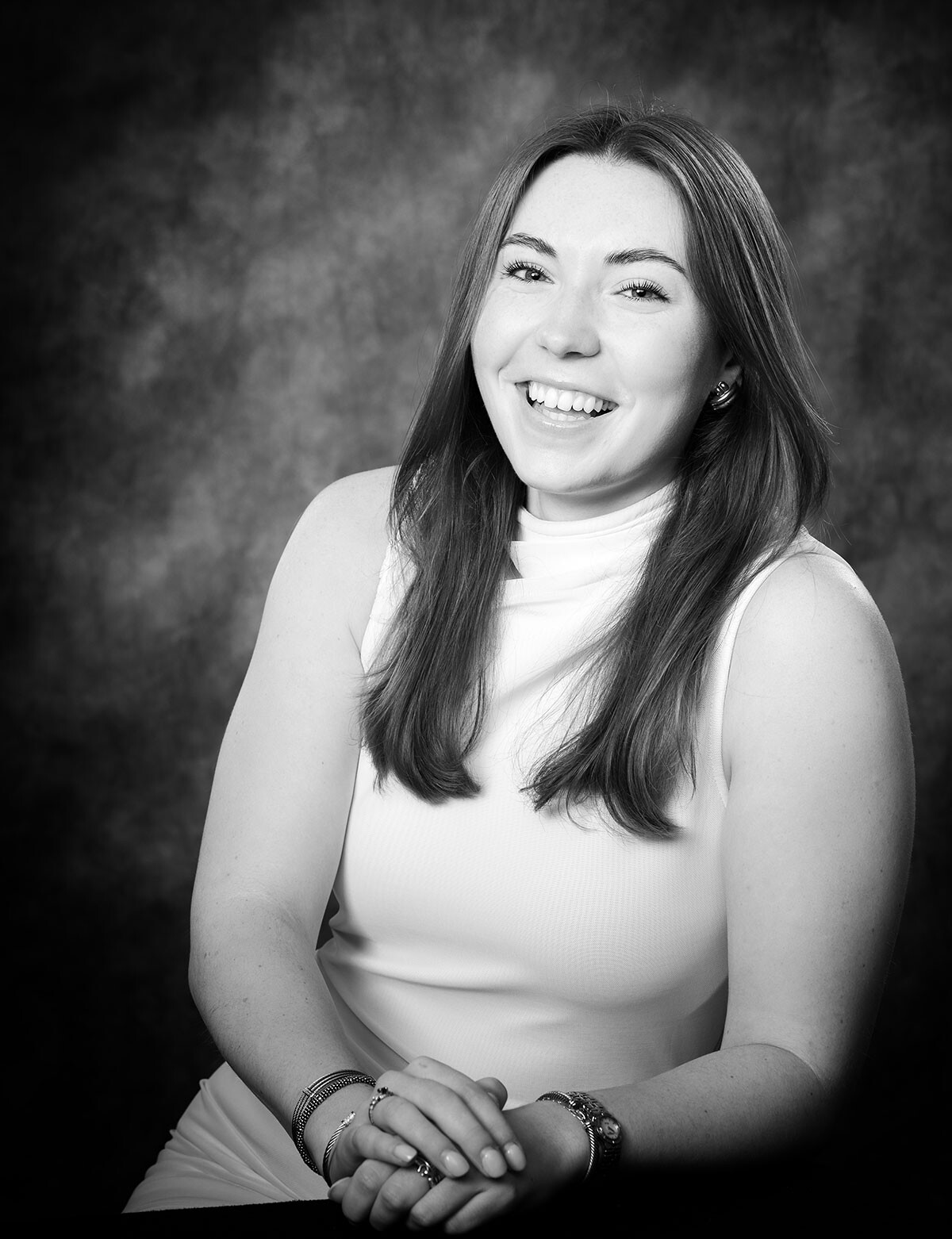
Who or what inspired you to pursue your current career path?
My dad, a businessman himself, has always been a major inspiration. His dedication and determination left a lasting impact on me. His approach to business taught me the importance of resilience and the drive to keep pushing forward, even when things get tough. Inspired by his example, I developed an entrepreneurial mindset at a young age, and that spark evolved into various little ventures over the years. There was never a doubt in my mind that I wanted to create something of my own and work for myself. That vision came to life when we started TrenLend.
What skills are essential for success in your field?
Adaptability. The in-person rental model is still a new concept, so there’s no established playbook. We’ve had to figure out a lot on our own, from inventory systems to customer experience. Equally important skills are communication, customer service, and an eye for trends, since we’re not only managing a business but also curating a collection of dresses that are stylish and on trend.

How do you handle collaboration and teamwork in your projects?
Amelia (Zahn) and I are each other’s greatest teammates. We’ve found success in being honest, clear, and supportive. We bring different strengths to the table and have learned to trust and respect those differences. If we disagree on something, we never take it personally. Our ability to communicate openly and share the same vision has been one of our strongest assets.
What challenges have you faced as a young professional, and how did you overcome them?
Stepping into a leadership role without a traditional corporate background. Starting a business meant I had to juggle multiple roles (marketing, customer service, finance, and HR) all at once. With little experience outside of my business, it was definitely overwhelming, and I still have moments where it feels like I’m figuring things out as I go. But having Amelia by my side has made all the difference. We lean on each other, whether it’s for advice, brainstorming, or just to remind each other that we’re in this together.
How do you maintain a healthy work-life balance?
As a business owner, it’s hard to fully “clock out.” There’s always something to plan or an email to respond to, but I’ve learned that taking time for myself and the people I care about is essential. I prioritize disconnecting in the evenings by shutting my laptop, silencing my phone, and focusing on activities outside of work. Amelia and I love grabbing dinner with friends after work, always followed by Two Roosters ice cream. Staying active through workouts or unwinding with a book or TV show also helps me recharge.
How important do you think networking is for career advancement?
Networking has played a big role in our professional growth, and I can say with complete confidence that our business wouldn’t be where it is today without it. At a time when we weren’t sure what direction to take, we connected with a financial advisor who not only offered practical advice but also gave us the confidence to move forward with opening a second location. That moment was transformative for me, as it shifted the way I think about growth and gave me more confidence in taking risks.
What motivates you to keep growing and developing in your professional life?
I’m passionate about what I do, and this business is much more than just a job. It’s something Amelia and I have built from the ground up. It’s been incredibly rewarding to see how far we’ve come and how the business continues to grow. Hearing from customers who had a great experience or found the perfect outfit for a special event is always a reminder of why we started this in the first place. Knowing we’re creating something meaningful while having a real impact keeps me motivated every day.
Sarah C. Weiss
Co-Creator of BBQ & Bubbly, Head of Americas Marketing at RUCKUS Networks
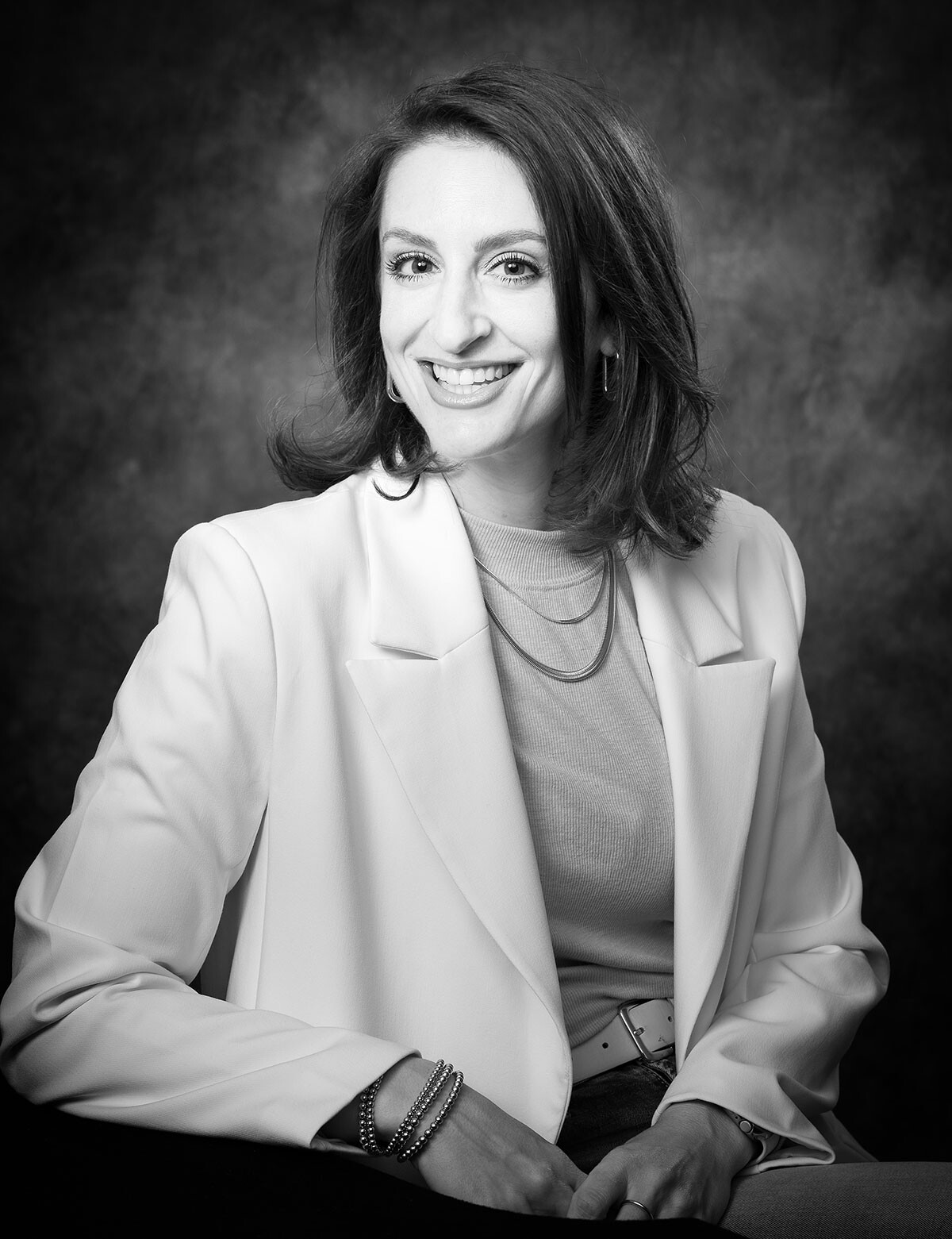
How do you define your professional goals?
I focus on work that drives business impact and builds lasting value. Marketing is a key part of my career, but at my core I’m a business advisor — helping companies think strategically, solve complex problems, and move forward with clarity. Curiosity and a results-driven mindset shape how I approach strategy and build strong, collaborative relationships.
What skills do you believe are essential for success in your field?
We’re in the relationship business. People want to work with and buy from those they trust, making the building of genuine connections essential. Balancing IQ with emotional intelligence (EQ) is critical. Subject expertise matters. However, how you collaborate, communicate, and navigate an organization — regardless of its structure — can be just as important for success.
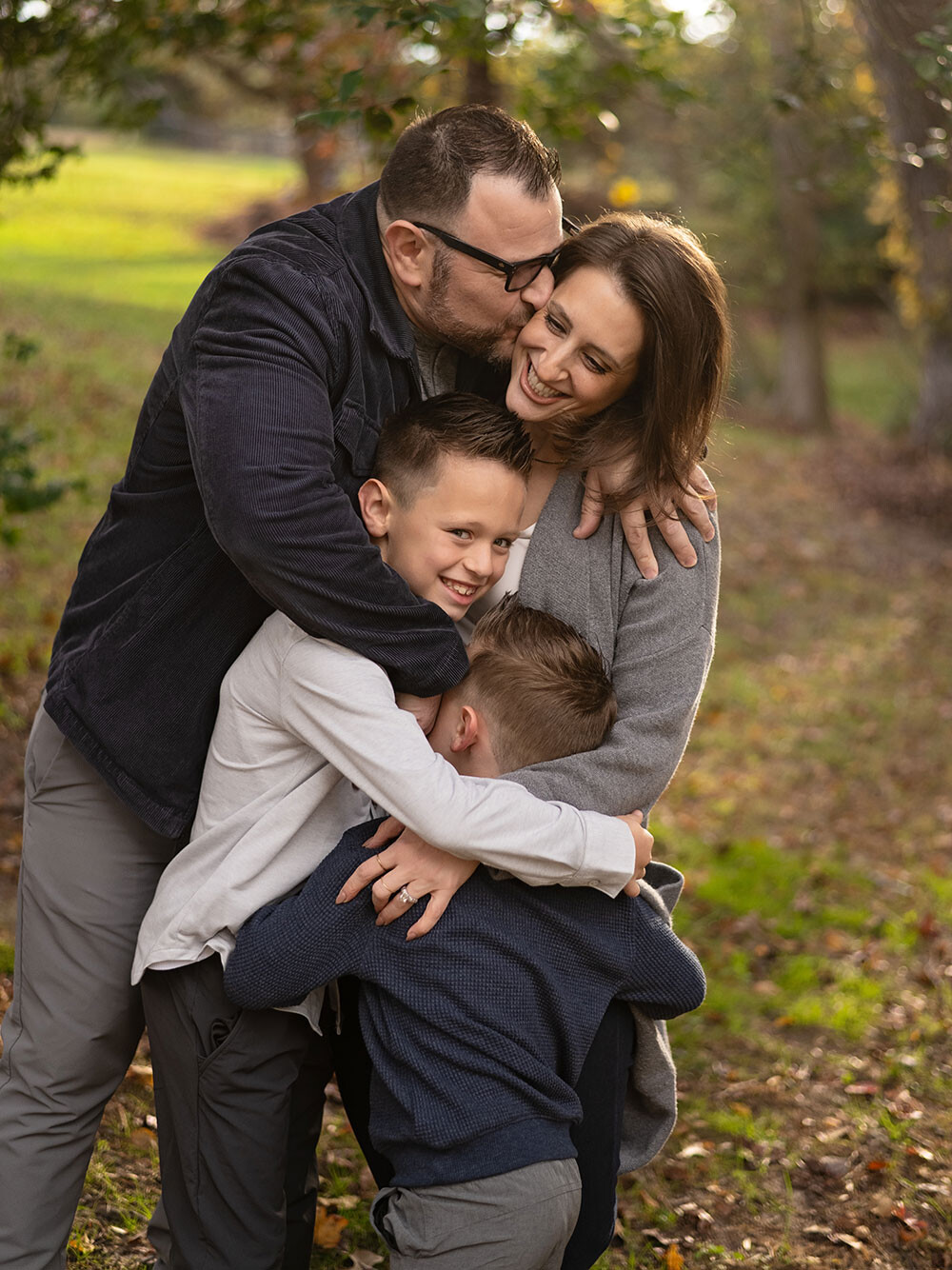
What type of work environment do you thrive in?
Success today depends on a company’s ability to adapt and evolve with technology. Helping businesses succeed means embracing change: pushing boundaries, testing ideas, and learning continuously. That’s where I thrive.
What role does flexibility play in your ability to maintain work-life balance?
As a business leader, wife, and mom of two boys (plus a rescue pup), balance is a constant work in progress; it’s rarely seamless. Life throws curveballs, and flexibility is key. Remote work allows me to be more present with my family while fully supporting my work and team.
Have you had any mentors, and how have they influenced your career?
I’ve been fortunate to have a few key mentors who are now also close friends. They’ve consistently shown up with advice and support. They taught me the value of authentic connection, accountability, and lifting others as you grow. These lessons shape how I lead, collaborate, and build meaningful relationships.
How do you stay updated with developments and changes in your field?
I stay curious — that’s key to keeping up with change. With AI and technology evolving rapidly, staying informed is essential. I’m intentional about what I read, from newsletters like Marketing Brew, AI Weekly, and Quartz Daily Brief to Substacks that offer distilled insights and fresh perspectives. I also make a point to connect with new voices in the workforce and people outside my industry.
What advice would you give to other young professionals just starting their careers?
Choose progress over perfection. Perfection chases external approval and sets impossible standards. It stalls growth. Progress pushes you to learn, adapt, and keep moving. It’s not about settling — it’s about evolving.
Michelle Woodward
Founder of DICED
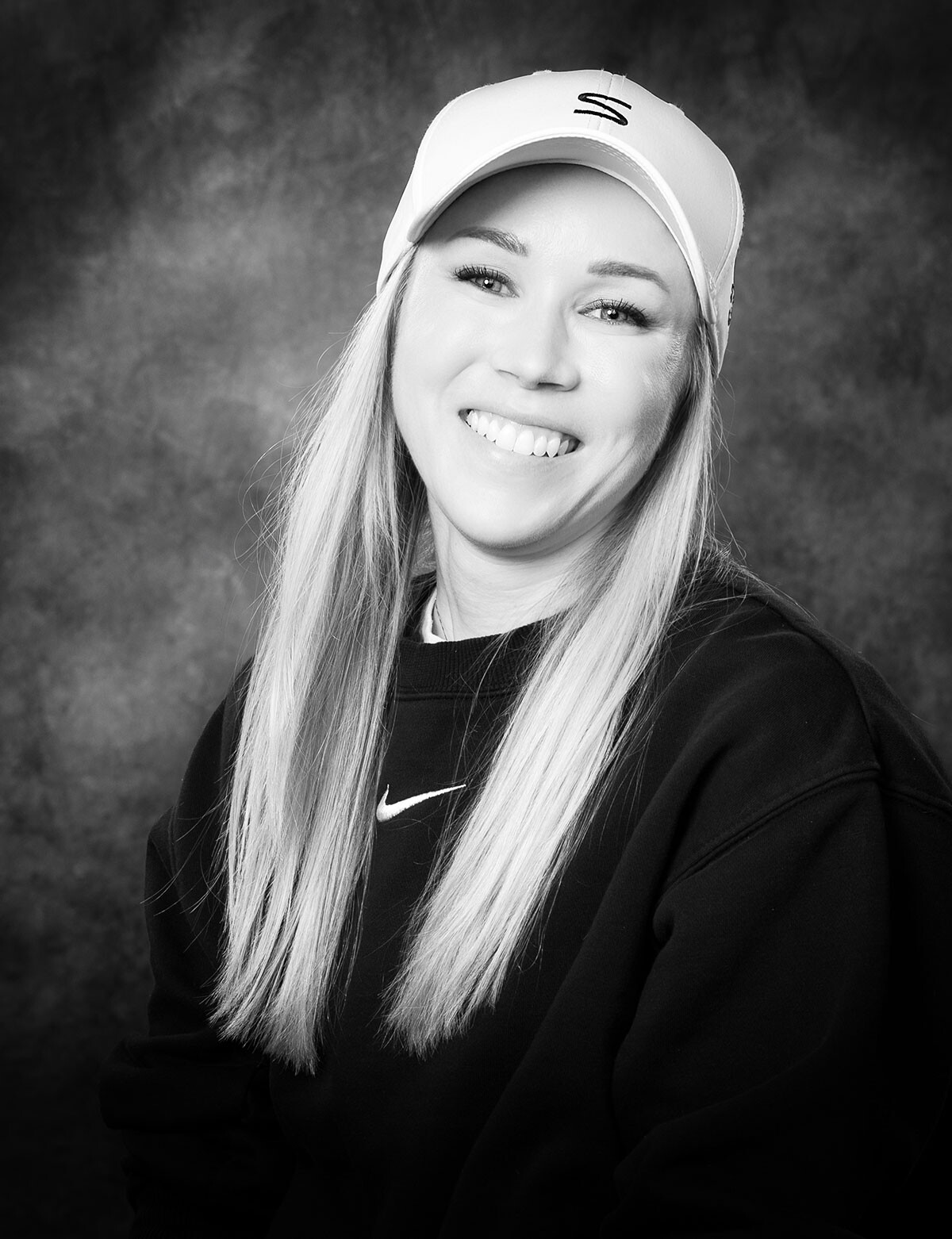
How do you define your professional goals?
For me, it’s simple — feeling proud of the work I do and the product we serve. I want to build something that reflects care, quality, and intention. If our food makes people feel good and our team feels supported and empowered, I’m on the right track.
How do you approach feedback and criticism to foster your personal and professional growth?
I’ve learned that good leadership is about making sure the people around me feel comfortable asking questions and giving open feedback. I’ve definitely made mistakes and also realized I wasn’t the best fit for every part of the business. So I stepped back and brought on a partner, Brandon Christy, DICED’s vice president and operating partner. We perfectly complement each other’s strengths and weaknesses. Brandon and I have taken ego out of it and love hearing from the team and each other how we can do things better.

Photo by Jamie Robbins
What type of work environment do you thrive in?
I thrive in a collaborative, fast-paced environment where people genuinely care — not just about the work, but about each other. As a recovering perfectionist, I try to balance doing things well with not taking everything too seriously. I also preach overcommunication because I think it can make or break any work environment.
What strategies do you use to manage stress and maintain resilience during challenging times at work?
I’m always working on managing stress, but what keeps me grounded is knowing the universe has my back. I really believe in karma — putting good into the world and trusting it’ll come back around. Resilience has always been one of my biggest strengths, and over the past 10 years it’s become bulletproof. I’ve been through a lot, personally and professionally, and I’ve learned that I will get through to the other side. Worrying just slows me down, so I try to stay focused, steady, and trust the process.
How do you balance your personal interests and passions with your professional aspirations?
My personal and professional lives are pretty intertwined — creating businesses and overthinking how to do everything better is something I really enjoy. I just go with the flow of the season and take it day by day. Otherwise, I love to get outside and relax with my favorite person and two dogs (Erica, Atlas, and Butters).
Have you had any mentors, and how have they influenced your career?
I really try to use common sense a lot of the time and do things differently than others. My business partner Brandon has been a big influence — before we partnered, we worked together indirectly at separate companies, and I leaned on him for advice a lot. We have such different strengths and abilities — and learning to trust someone else’s process and let go of things has been a huge catapult for our business. Other than that, being underestimated is a big motivator and keeps me continuously learning.
What personal values guide your decision-making in your career?
I try to always do the right thing, just because it’s the right thing to do — and I lead by putting others before myself. Whether it’s my team or our customers, I want people to feel supported and know I’ve got their back. Long-term trust matters more than any short-term gain.
Amelia Zahn
Owner of TrenLend
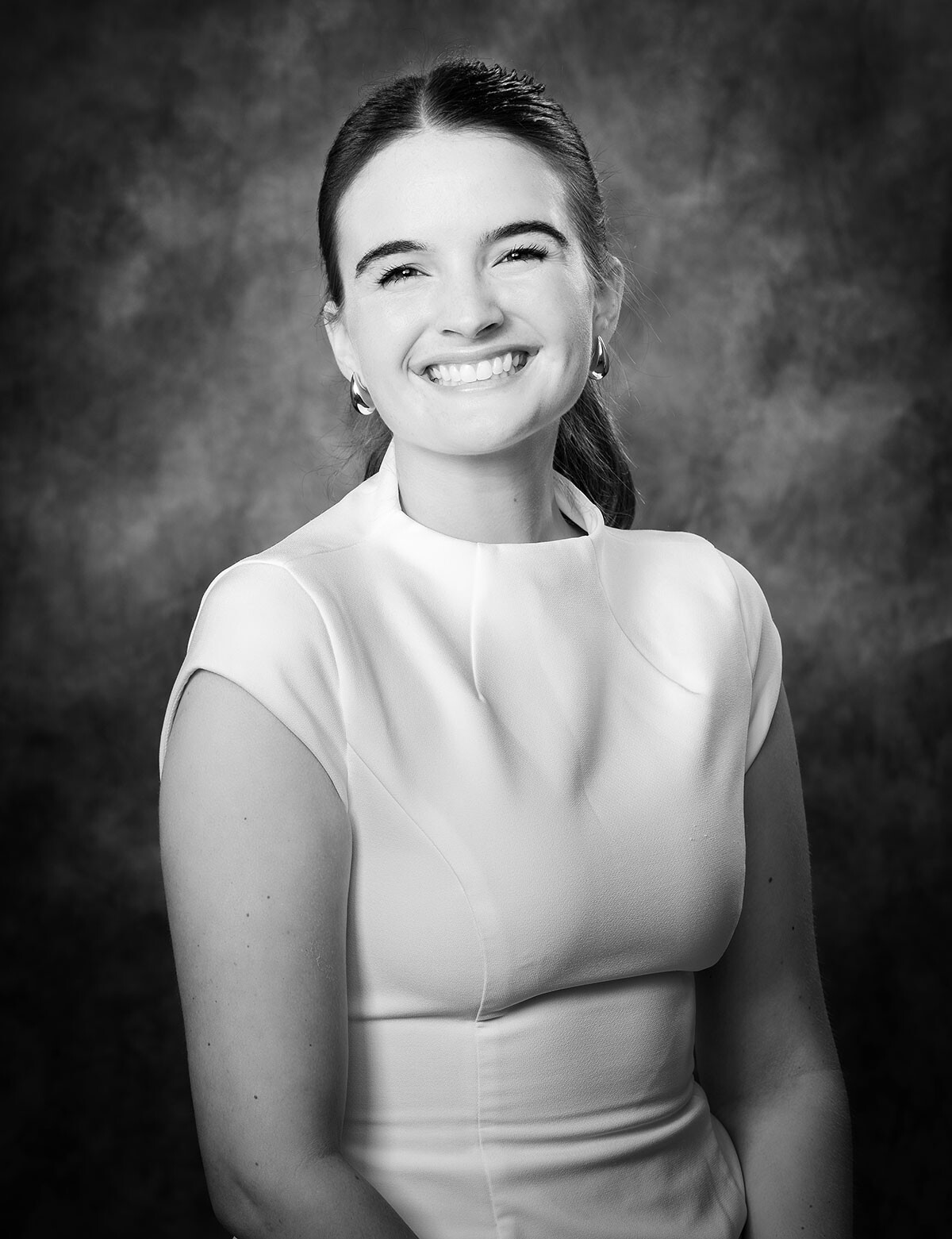
What steps are you taking to achieve your long-term career aspirations?
I’m focused on building TrenLend into a brand that scales without losing the personalized service and quality that set us apart from the start. Since launching the company in college, we’ve grown to two storefronts, and every step forward has been intentional. We’re actively preparing for the future by hiring new full-time and part-time team members who align with our values, investing in technology that streamlines operations and enhances the customer experience, and building systems that allow us to grow sustainably.
With growth comes complexity, and I believe the key is staying one step ahead. It’s not just about expanding our footprint — it’s about doing it with clarity, purpose, and a deep commitment to our customers.
How do you approach feedback and criticism to foster your personal and professional growth?
With the clothing rental industry still emerging — and our try-before-you-rent concept being even newer — there have definitely been unexpected challenges. One of the biggest surprises early on was realizing that even first-time renters come in with strong expectations. As a young entrepreneur, I quickly learned that it’s not enough to just introduce a new concept: You have to deeply understand your target customer’s mindset and anticipate how they want to feel during the experience.
Feedback and criticism have been essential to our growth. They offer a direct line into how customers perceive our service, and that insight has helped us continuously refine everything — from our in-store interactions to our booking flow and garment selection. I view every piece of feedback, even the tough ones, as an opportunity to improve and make the business stronger. Staying open to these perspectives has been one of the most important factors in both my personal development and our company’s evolution.
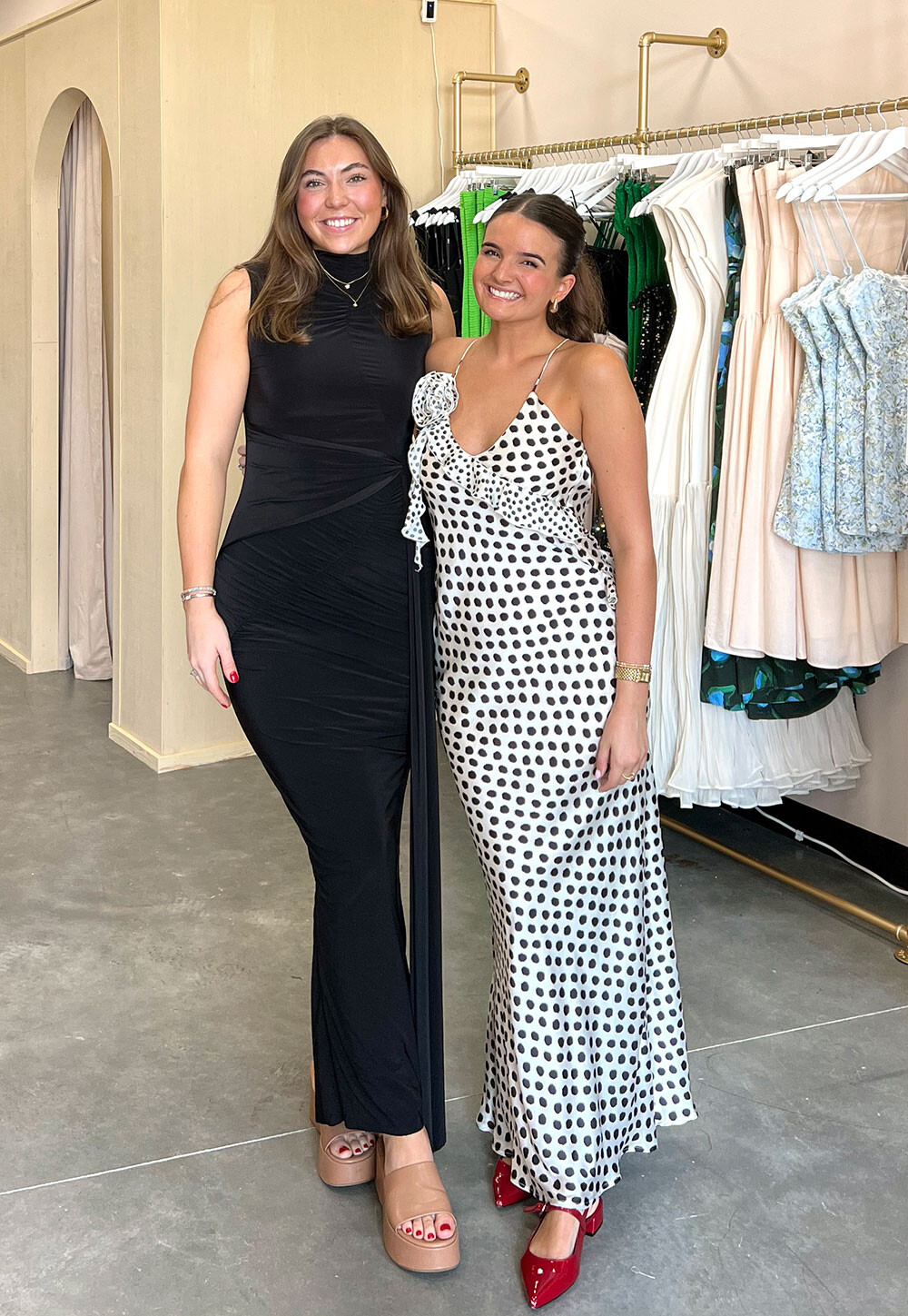
Have you had any mentors, and how have they influenced your career?
I feel incredibly fortunate to have my dad as a mentor. His guidance and support throughout my journey with TrenLend have been truly invaluable. What makes his mentorship so impactful is the unique combination of his extensive background in entrepreneurship and his deep understanding of who I am, both personally and professionally.
Having someone I trust so deeply to turn to during both big decisions and everyday challenges has made all the difference. His perspective helps me stay grounded, think strategically, and navigate the highs and lows of building a business with more confidence. I truly believe that his influence has helped accelerate my growth as a founder and leader.
What role does innovation play in driving growth within your industry?
Innovation plays a crucial role in driving growth within the clothing rental industry, especially as the market continues to evolve rapidly. With growing demand for more affordable and sustainable alternatives to traditional retail, customers are turning to rental options that still allow them to enjoy “something new” for every occasion. Because the industry is still relatively new, there’s a unique opportunity — and need — for businesses to innovate in how they operate, serve customers, and differentiate themselves.
As more players enter the space, innovation becomes the key to standing out. Whether it’s through improving logistics, enhancing the customer experience, or integrating new technology, staying ahead means being willing to challenge traditional models and continually adapt. At TrenLend, we view innovation not just as a strategy for growth, but as a necessity to meet customer expectations in a modern, fast-moving market.
What advice would you give to other young professionals just starting their careers?
Don’t wait until you have everything figured out to take the leap into entrepreneurship. I used to believe that starting a business was something reserved for people who were wildly experienced or had every detail of their lives perfectly in place — but that’s simply not true. You don’t need to have all the answers or a flawless plan.
What you do need is an idea you believe in and a passion so strong that you’re willing to face whatever challenges come your way to make it happen. The rest — learning, adapting, building confidence — comes with time and experience. Starting before you feel completely ready is often the best way to grow, and you’ll be amazed at what you can accomplish once you begin.
- Movers & Shakers Class of 2025
- Welcome to Grilling Season
- Find Something New-to-You at The Meat House
- Garden Adventurer: Catmint: A Purr-fect Perennial
- Liquid Assets: Pillow Made of Concrete
- Liquid Assets: Spicy Pineapple Margarita
- Restaurant Profile: Brewery Bhavana
- Pay It Forward: Carolina Circus Festival
- Small Business Spotlight: OHM Fitness – Cary
- Erica Chats: Moments and Memories
- Things to Do: June/July 2025



